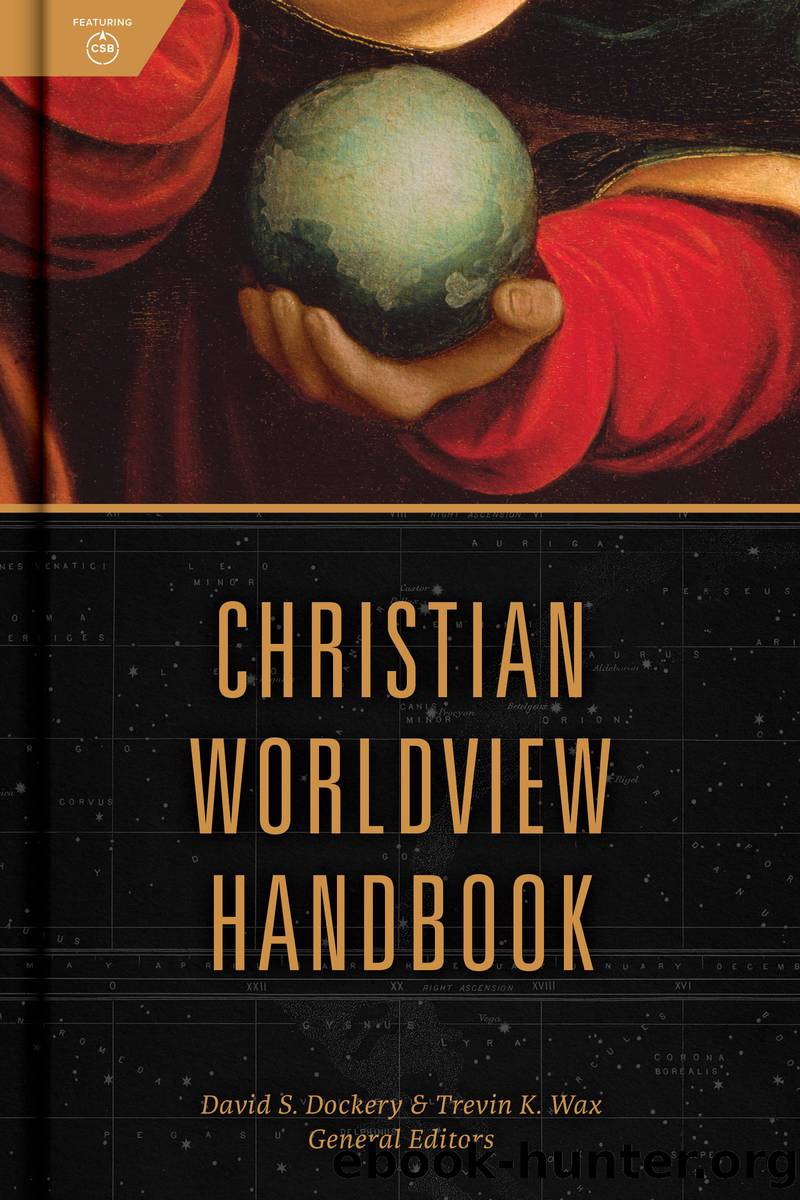Christian Worldview Handbook by Dockery David S.;Wax Trevin; & Trevin Wax

Author:Dockery, David S.;Wax, Trevin; & Trevin Wax
Language: eng
Format: epub
Tags: Religion/Biblical Reference/General
Publisher: B&H Publishing Group
Published: 2019-11-02T00:00:00+00:00
The Bible and Slavery
Craig Mitchell
As one reads the OT and the NT, slavery is clearly part and parcel of the whole ancient economic system. Throughout the ancient Near East (and everywhere else for that matter), slavery was a common solution to many problems. Bible readers are often confused with how we can reconcile such an evil as slavery with the Christian worldview. To do so, we have to take a number of things into account.
The first thing that we as Bible believers must recognize is that we live in a fallen, sin-sick world. With the fall of man, many things came into existence that should not be. Murder, rape, warfare, and crime are just a few of many things that are distortions of the social order God desires. Slavery must first be understood as a corruption or distortion of the social order that results from the fall. The Bible does not endorse slavery; it merely realizes it as a state of affairs with which believers must contend.
Throughout the OT we find that the term ebed, meaning âslaveâ or âservant,â is used more than 800 times. In more than a fifth of those instances it designates a household servant. Unfortunately, we also find that the number of slaves is often listed with animals to demonstrate the wealth of a patriarch. Throughout the ancient world, slaves were considered as part of a household, and as such, those people lost their own individual identities. They could be beaten, bought, sold, and inheritedâeven within ancient Israel.
Though the OT record makes clear that slavery was practiced within ancient Israel, the Hebrews practiced slavery in a way that differed from the practices of surrounding cultures. While other nations viewed slaves as nothing more than tools to be used, the Hebrews never lost sight of the fact that slaves are humans made in the image of God. As such, men retain a certain dignity that was not to be violated. Consequently, we find all kinds of laws in the Pentateuch (Genesis through Deuteronomy) regarding how slaves can and cannot be treated. In fact, in ancient Israel slaves even had the rights of citizens. All of this is because the Hebrews were constantly reminded that God brought them out of the land of slavery (Exod 20:2). One way the Hebrews differed in their approach to slavery was the Sabbath release after six years. Slavery was not intended to be a perpetual state of affairs for the enslaved unless they chose to stay.
In the NT, the most common word for slave is doulos (Gk), which is used 124 times. Aristotle argued that all things seek to achieve autonomy and self-sufficiency. Hence, slavery is the worst of all situations for the Greek citizen. The doulos may have some degree of autonomy but not self-sufficiency. In the ancient Greek world, it was sometimes better to be a slave and part of a household than to be free and separate from a household. At the time of the NT, 50 percent or more of humans served in some type of slavery.
Download
This site does not store any files on its server. We only index and link to content provided by other sites. Please contact the content providers to delete copyright contents if any and email us, we'll remove relevant links or contents immediately.
Christian Worldview Handbook by Dockery David S.;Wax Trevin; & Trevin Wax(80)
The Birth of Satan: Tracing the Devil's Biblical Roots by T.J. Wray(71)
The Testament of Solomon by F. C. Conybeare(56)
The Masorah of the Former Prophets in the Leningrad Codex: Vol. 6: 2 Kings (Texts and Studies (Third Series)) by David Marcus(51)
225-236 by A. Saiz(33)
